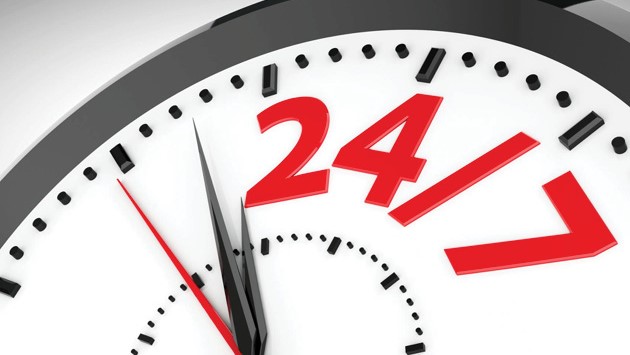
The coronavirus pandemic has had an impact on organisations, businesses, individuals and their families. As one of the few European Agencies delivering services 24/7, and with centres spread across Europe, the European GNSS Agency (GSA) has put various measures into place to ensure continuity of services and the security of EGNSS infrastructure, while at the same time prioritising the health and safety of staff and contractors.
The GSA is responsible for ensuring business continuity and keeping Galileo and EGNOS secure and operational, and this can only be done by protecting the health and safety of its staff and partners, which remains the Agency’s top priority.
The GSA is helped in this by the fact that, from its Prague headquarters, it is used to working remotely with the different Galileo and EGNOS sites across Europe. At the same time, special measures are being taken to protect the various operators working around the clock, seven days a week. The Agency is currently responding to the different scenarios in each country in order to manage security and operations, while putting measures in place to protect its people.
“These are very challenging times for all of us, requiring us to be flexible and resourceful. I am proud of how the GSA teams across our different sites have quickly adapted to the new situation,” said GSA Acting Executive Director Pascal Claudel. “The spirit of solidarity and cooperation I experience every day has shown me that the GSA’s team is its core asset and a strong foundation upon which to build the future of the Agency,” he said. “The entire European GNSS family has pulled together, and the GSA can rely on the support and commitment of all our partners, including Member States, industry, and SMEs.”
GSA staff and contractors are learning new ways to work online to continue providing location, navigation and timing services to the user community. This applies equally at GSA headquarters and at the various sites. The Agency is also working with the European Commission, Member States and industry to find new solutions to emerging issues. “With the support of the Member States and industry, the GSA has demonstrated its leadership in this time of crisis, ensuring the continuity of the Galileo and EGNOS services. This is evidence that Europe is stronger together,” said GSA Administrative Board Chair Jean Yves Le Gall.
The GSA’s commitment to helping European industry benefit from EGNOS and Galileo remains as strong as ever, and the Agency is continuing its work on activities that are already underway.
Horizon 2020
The 21 ongoing projects remain on track (with the option of contractual adjustments to help partners impacted by the crisis). The new call with 44 project proposals is in the evaluation phase, for the first time taking place remotely via video conference.
Fundamental Elements
There are 19 projects ongoing and on track (also with contractual flexibility to help partners impacted by the crisis). For later in 2020, 13 more projects are already published or are under evaluation.
Industrial contracts
During the COVID-19 crisis, the GSA is ensuring full support to the EU space industry by agreeing contractual adjustments to be implemented as needed throughout the entire supply chain, from Primes to SMEs.
GNSS and the response to COVID-19
Since the outbreak of the coronavirus earlier this year, many apps have been developed that use GNSS precise location to monitor the global spread of the virus and to map outbreaks of the COVID-19 disease. GNSS-apps are also proving their usefulness by helping people to implement social distancing in queues and other public spaces.
To support the EU response to COVID-19, the EC and GSA are also working on the “Galileo Green Lane” app, to facilitate the movement of goods and freight within the EU. The objective of the “Galileo Green Lane” is to relieve borders from the pressure of handling goods and to manage more efficiently the transit of critical goods. At the same time, this Galileo app will provide Member States with a tool to report to the EU on the Green Lanes initiative. A first version of the app is expected in mid-April.
The GSA is compiling a repository of these apps as a knowledge bank of solutions and toolbox that are being used to fight the pandemic and to help authorities, emergency response services, citizens and app developers to understand current needs and available resources.
If you have developed an app that is already working and being used to map the spread of the coronavirus, to monitor incidences of the disease, or to alert users about possible risky contacts, tell us about it and we will include it in our database. We are looking for apps that are already working and available. Submit some information on your solutions in writing to market@gsa.europa.eu and we will feature them on the GNSS4Crisis page.

